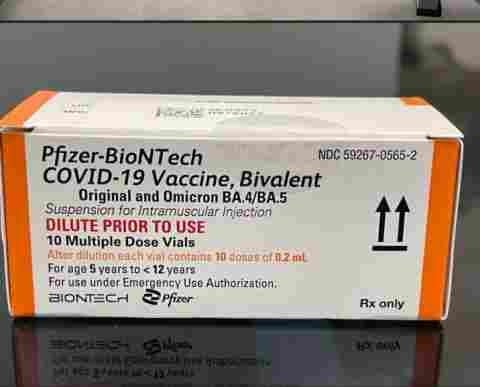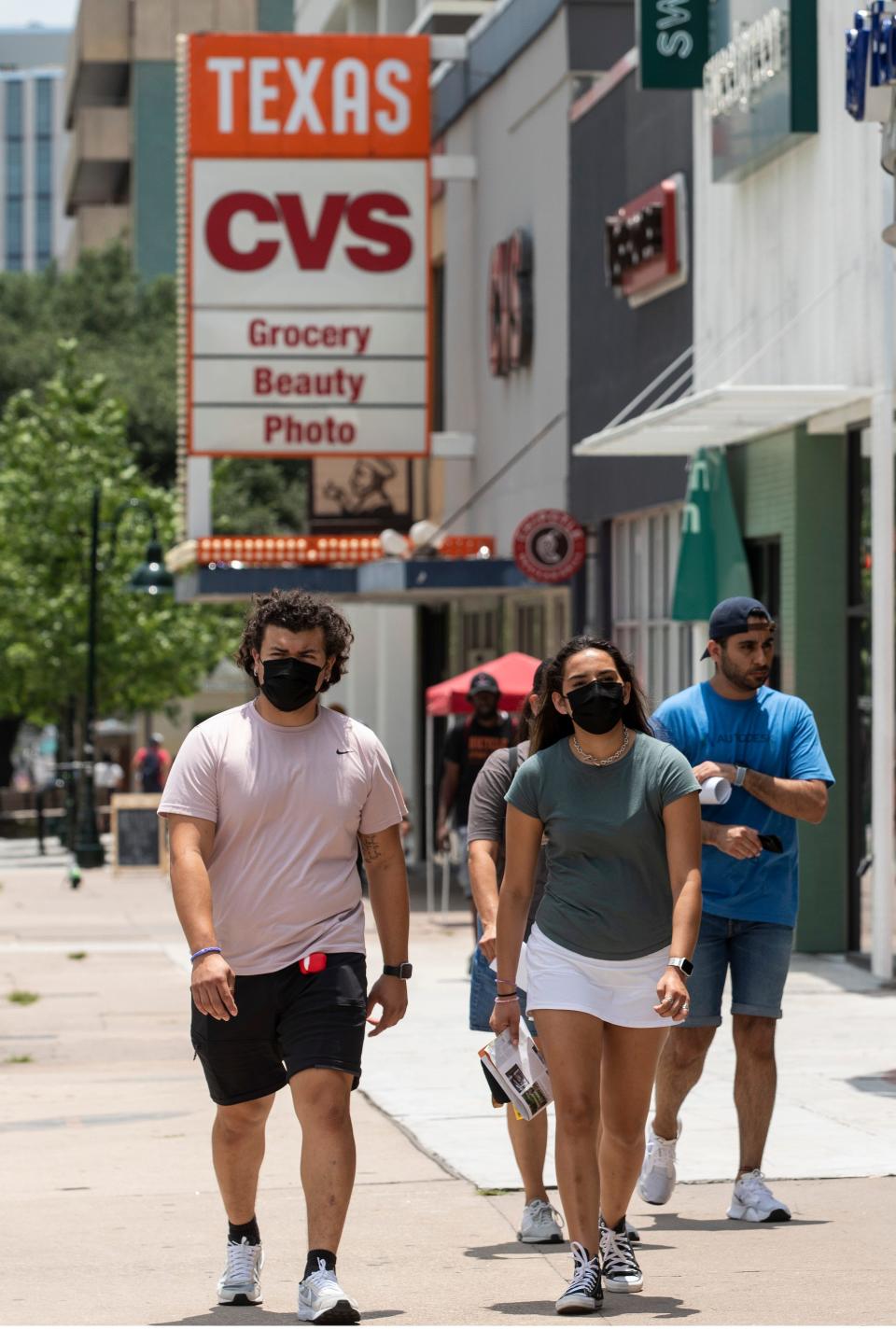Do I need a new COVID-19 booster? What to know about new CDC, FDA vaccine recommendations
The Centers for Disease Control and Prevention and FDA has updated its recommendations on COVID-19 vaccines.
The biggest change: Gone are the original formulas of the vaccines (the pre-omicron variant, aka the monovalent). Instead, the bivalent vaccines (aka the boosters) that target the original COVID-19 and the omicron variant are the only kinds recommended now.
For Austin Public Health, this means that whatever small stock of vials of the original formulas of vaccine it had, has been disposed of, said Nursing Supervisor Nelda Garcia.
Who can get vaccinated?
COVID-19 vaccines are available for anyone ages 6 months and older.
Austin Public Health has been trying to reach populations that remain unvaccinated by going to where they are, Garcia said, including where they live, work, and to schools or shopping areas.
"We have a large group of people in our Black community and our Latino community that are not taking the vaccine as we would like them to," she said. "We have to continue pushing for vaccination to eradicate COVID-19. "[The virus] just keeps progressing because people don't get vaccinated."
Predicting the next COVID-19: What we've learned 3 years later
Do I need another vaccine booster if I got one in fall?
If you already had a bivalent vaccine after it became available in September, you are not eligible for a second booster unless you are:
Immunocompromised
Age 65 or older
Then you can get a second bivalent vaccine two months after the first one.

If I'm still unvaccinated, what should I do?
People age 5 and up can get one dose of a bivalent (booster) vaccine. They do not have to start a series of vaccines before the booster. If they are immunocompromised, or 65 or older, the recommendation is a second dose two months after the first one.
Unvaccinated children age 6 months to 5 years old can get two doses of Moderna bivalent vaccine one month apart.
For the Pfizer vaccine, unvaccinated children ages 4 and younger get three doses of a bivalent vaccine. The first two are given three weeks apart. The third dose is give eight weeks after the second one.
'You have to pivot:' What Austin's medical community has learned from COVID
If I haven't had the bivalent vaccine, but had an earlier vaccine, what do I do?
The recommendation is get a bivalent vaccine to protect against omicron, or two doses two months apart if you are immunocompromised or 65 or older. It does not matter which vaccine brand you previously had.
What happens this fall with vaccines?
The FDA expects to make a determination in June about the vaccine recommendations for the fall. Like with a flu shot, manufacturers are busy rnow trying to predict what variant will circulate this fall.
Garcia like other experts expect a COVID-19 vaccine will be recommended yearly along with the flu vaccine.
If I've already had COVID-19, do I need a COVID-19 vaccine?
Yes. Go ahead and get a bivalent booster. Immunity from having COVID-19 and getting vaccinated decreases overtime.
Even with vaccination, Garcia said, "there is no guarantee that you're not going to get sick. What it does help is you don't end up in the hospital. The recuperation time is better, so you're not out as long."
'I will wake up from this': A year of Austin's heartbreak, resilience with COVID
What are we expecting locally in summer and fall?
For the past three years, Austin has seen a spike in COVID-19 cases in December and January and again in June and July.
"Around the holidays (Memorial Day and July 4), we're going to see an increase," Garcia said. That's from people gathering and people traveling."

What should you do if you do get sick?
If you have symptoms, take a test.
If you have COVID-19, stay home for five days, then wear a mask for at least days six through 10, until you test negative.
If you don't test positive, still wear a mask, while you're having symptoms.
"Even if you're not sure if it's allergies or not allergies, and allergies are huge in Austin, protect yourselves and others," Garcia said.
If you do have allergies, Garcia said, you can put yourself more at risk for flu or colds because your immune system is down.
At home COVID-19 tests are still available for free through COVIDtests.gov. Austin Public Health also has free at-home tests, though Garcia said, they are getting fewer requests for them. She encourages people to get tests while Austin Public Health has them, and check the expiration dates on any tests they might have at home.
This article originally appeared on Austin American-Statesman: CDC, FDA updates COVID booster vaccine guidelines, recommendations

